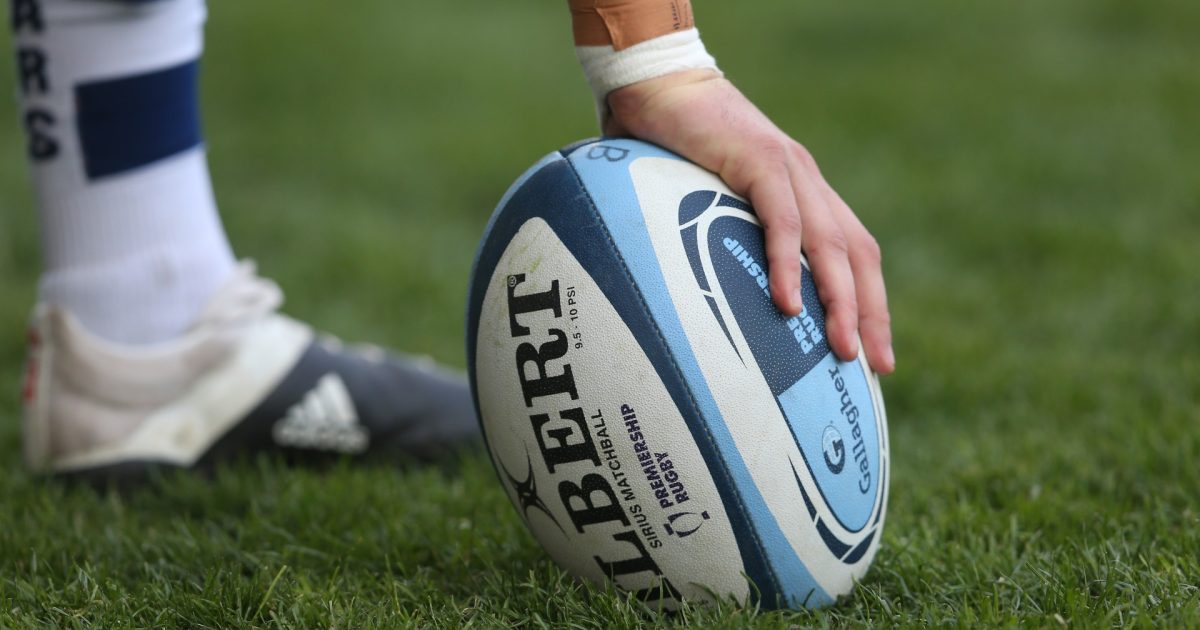'Real step forward': Premiership publishes 20/21 salary cap report

New Premiership Rugby CEO Simon Massie-Taylor has insisted that the strengthened salary cap is fit for purpose now that the league’s salary cap department has stronger investigatory powers in place to monitor the financial accounting of its clubs who face stronger deterrents than before if they break the rules.
Established in 1999, the salary cap framework underwent crucial changes followed the caustic fallout after defending Premiership champions Saracens were automatically relegated to the Championship for repeated breaches of the salary cap.
A 2020 report written by Lord Paul Myners, the late former cabinet minister, and commissioned by Premiership Rugby emphasised the need for greater transparency about how the salary cap operated and officials have now published the salary cap report into the 2020/21 season, the first since the powers of investigation and the list of punishments were strengthened.
This public publication of the annual salary cap report is a first for the tournament and its officials intend to make it an annual event in an effort to enhance the league’s credibility. The findings don’t reveal the wage bills of specific clubs or the salaries of specific players, instead offering an overview of general player wages across the Premiership.
A total of £94,722,353 was collectively spent by the 13 clubs in the senior salary cap for 2020/21 (Saracens were included despite playing in the Championship) while £4,143,756 was spent under the collective academy salary cap.
“The salary cap is continuously kept under review to ensure it is fit for purpose and it is proportionate and meets its legitimate objectives and that is something we do on an ongoing basis… we do our best to ensure that it is legally supported,” explained Massie-Taylor, who became Premiership Rugby CEO in October 2021.
“The key element was actually the recommendations around ensuring there are appropriate sanctions in place to deal with any transgressions, so we have got really strong investigatory powers now in place to monitor things but equally the deterrent is there to ensure that if someone does transgress the powers are there. They can have trophies stripped, there is relegation. There are some serious, serious sanctions that deal with any serious transgression.
“The salary cap is hugely important because the league’s USP is its competitiveness and the salary cap is a brilliant mechanism in order to try and preserve competitiveness and you want to make sure that mechanism is as effective as possible.
“I do think these new powers that came through the review are really important. For example, the finalists being subject to an extended audit is an effective tool to answer lingering questions. It is things like that are important to build credibility with the fans.
“The main point we are trying to get across with the report is transparency, that we are here to share the data and make it open to the public. I’m sure fans will be interested in the relative (salary) value of the different positions and also some of the data around the different stages of careers. There is lots of information here and some natural questions that will come out of it.”
Salary cap director Andrew Rogers is tasked with ensuring everything runs smoothly and that clubs stay within the regulations. “The role is to make sure everyone is confident in the system that we have in place and the team here are doing the best job possible and believes and trusts in the system,” he said.
“I can’t give any club a clean bill of health because there is a window we always work but what I can say, particularly now with the new system, is all the clubs have been very open and transparent with me in managing their squads each season and that has been really positive.
“When Lord Myners did his review he looked at all the other sporting systems that had investigatory and enforcement powers and effective sanctioning and we made sure this competition would have the very best to ensure we can do as much as we can.
“We are obviously not law enforcement but we are able to access a lot and the ability to look at tax returns and bank statements and also mobile phone devices and emails is a real step forward.”
The additional workload, which now includes an extra forensic audit of whichever team is crowned the champions at the end of a season, has seen Rogers given more staff. “There are three of us now, it was one. I’m very pleased I have got two extra people now helping me. It makes a big difference.
“With the annual audit we do at least three players at each club for their tax returns and then for the extended audit, the champions, we do half of their playing squad, we look at tax returns and bank statements over a period of time. It is more extensive.
“We have just completed that with Harlequins for last year so that covers a real detailed forensic assessment that goes into club officials’ emails and phone messages as well as player bank statements, tax returns for over half the squad so it is a very detailed piece of work that we now have undertaken this year and will continue to do so going forward.”
It was earlier this year when the salary cap made headlines with an investigation into Leicester over third-party payments to the image rights companies of players from 2016/17 to 2020/21. The Tigers were ordered to pay £309,841.06 in fines and taxes.
“We are always looking at things,” continued Rogers. “That case, in particular, was a quick process due to the co-operation from the club. That leak in December through to its conclusion in March was quick in terms of sporting investigations and conclusion of things.”
- Click here to read the full 20-page 2020/21 Premiership Rugby salary cap report

























